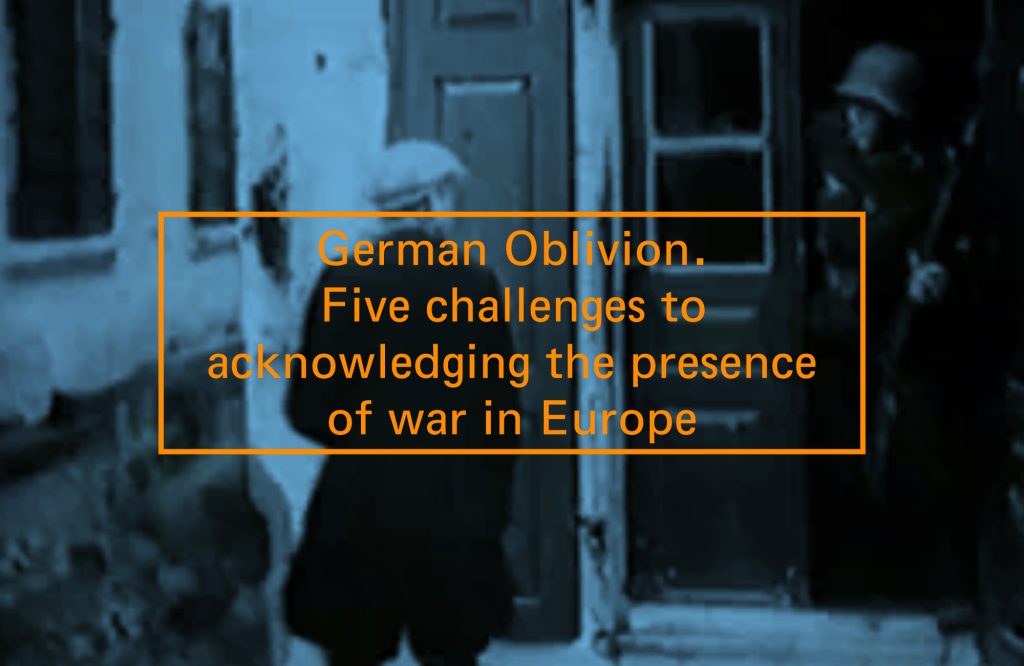
On Thursday, December 4, at 6 pm, German historian and urban anthropologist Felix Ackermann will deliver a lecture titled “German Oblivion”. The event will take place at the CAC Reading Room (Vokiečių g. 2, Vilnius).
German society is proud of its culture of remembrance, which is considered the foundation of the Federal Republic. The German belief that “we have come to terms with our past” is among the reasons why it took many years after 2014 for Olaf Scholz to proclaim a Zeitenwende in 2022 as a point of no return. The permanent presence of a Bundeswehr brigade in Lithuania raises the question of the presence of Germany’s past in the region. In his lecture, Felix Ackermann discusses the destruction of the city of Jonava by the Wehrmacht, the war of annihilation in the Rudninkai Forest, and the end of East Prussia as a German bollwerk. He identifies challenges for the creation of a narrative of the 20th century in which the specifics of the places and their inhabitants becomes meaningful to German soldiers. He also calls for an enhanced presence of German scholars and artists in addition to the presence of 5,000 soldiers in order to establish new cultural connections and to question old ones.
The event will be held in English and is open to all.
Photography and/or filming will take place during the event. Photos and/or video recordings may be used for event publicity on social media, websites, press, and other channels.
The lecture is being organized in the context of the exhibition ‘Bells and Cannons. Contemporary Art in the Face of Militarisation’ held by the CAC and the Goethe-Institut in Lithuania.
FELIX ACKERMANN since 2022 professor for public history at the History Department of FernUniversität in Hagen. His research examines the aftermath of violence in Belarus, Lithuania, Poland, Ukraine, and Germany. From 2016 to 2022, he was a research fellow at the German Historical Institute in Warsaw, where he wrote a history of the penal system in partintioned Polish-Lithuanian Commonwealth including Lukiskes prison. From 2011 to 2016, he taught as a DAAD visiting associate professor for applied humanities at the Belarusian exile university EHU in Vilnius. From 2001 to 2011, he established the Institute for Applied History at the European University Viadrina in Frankfurt (Oder). In 2018 Lapas published „Labai blogai arba liuks. 8 pamokos apie Lietuvą“
Cover image: Wehrmacht Soldier chasing Jewish inhabitants of Jonava in late June 1941, Wochenschau, No. 566, 9.7.1941